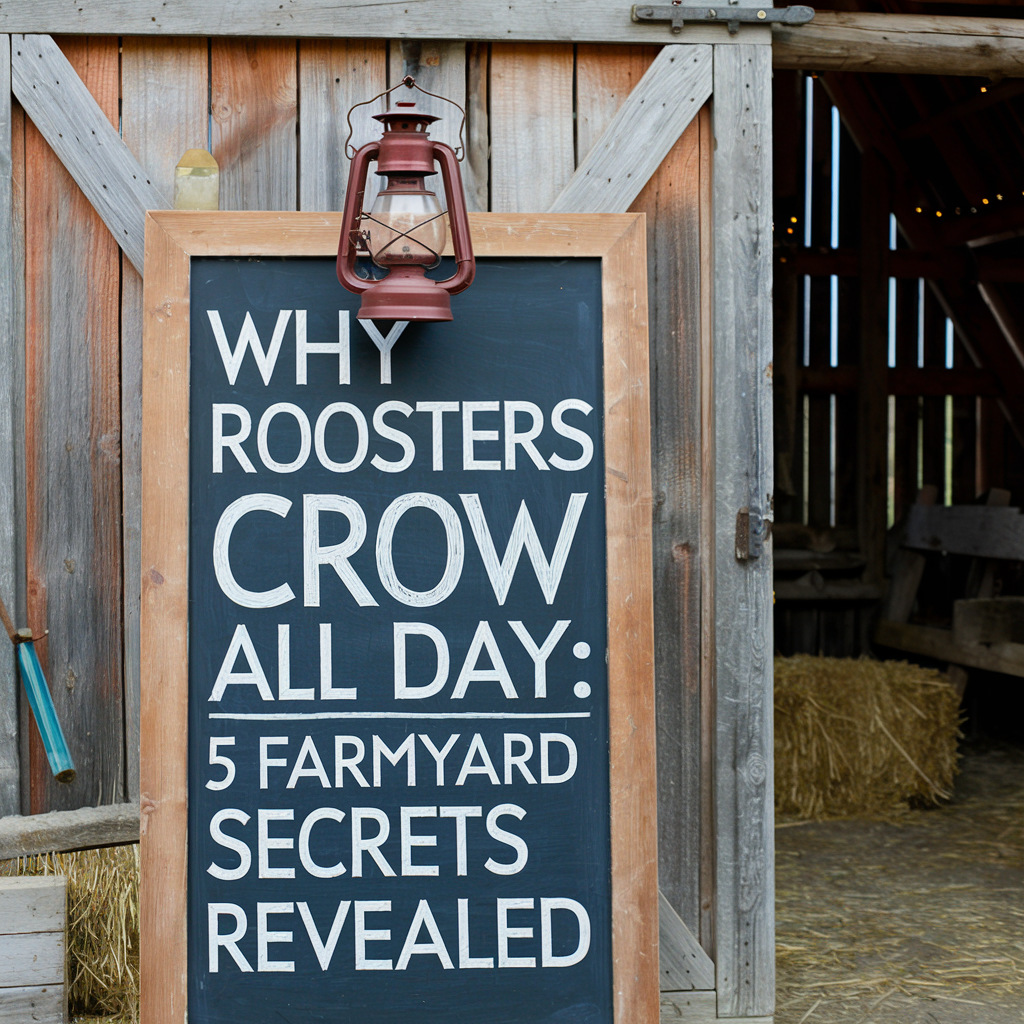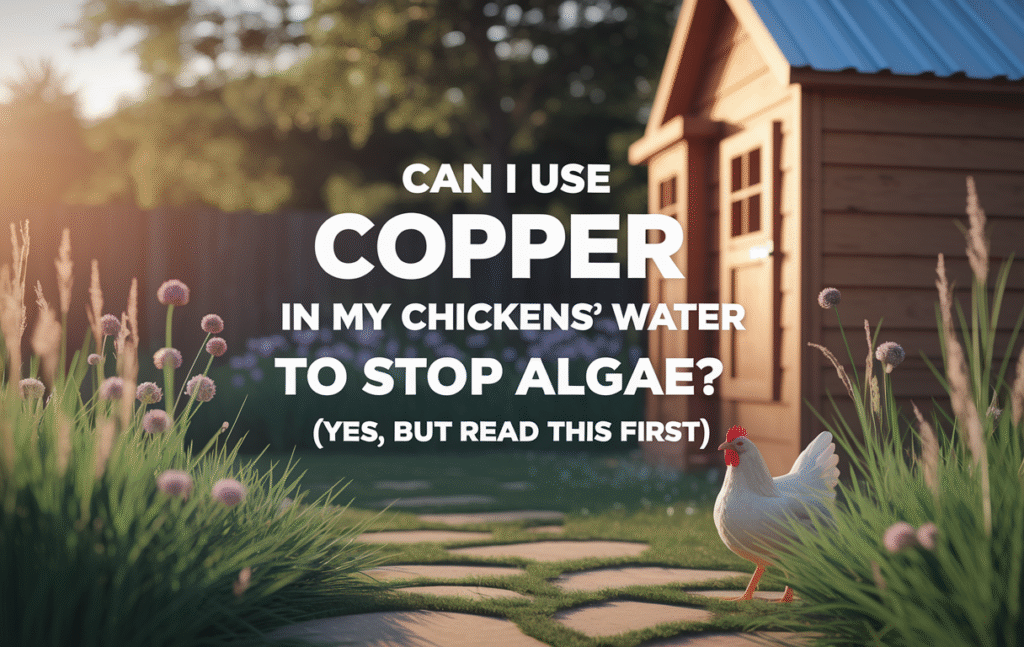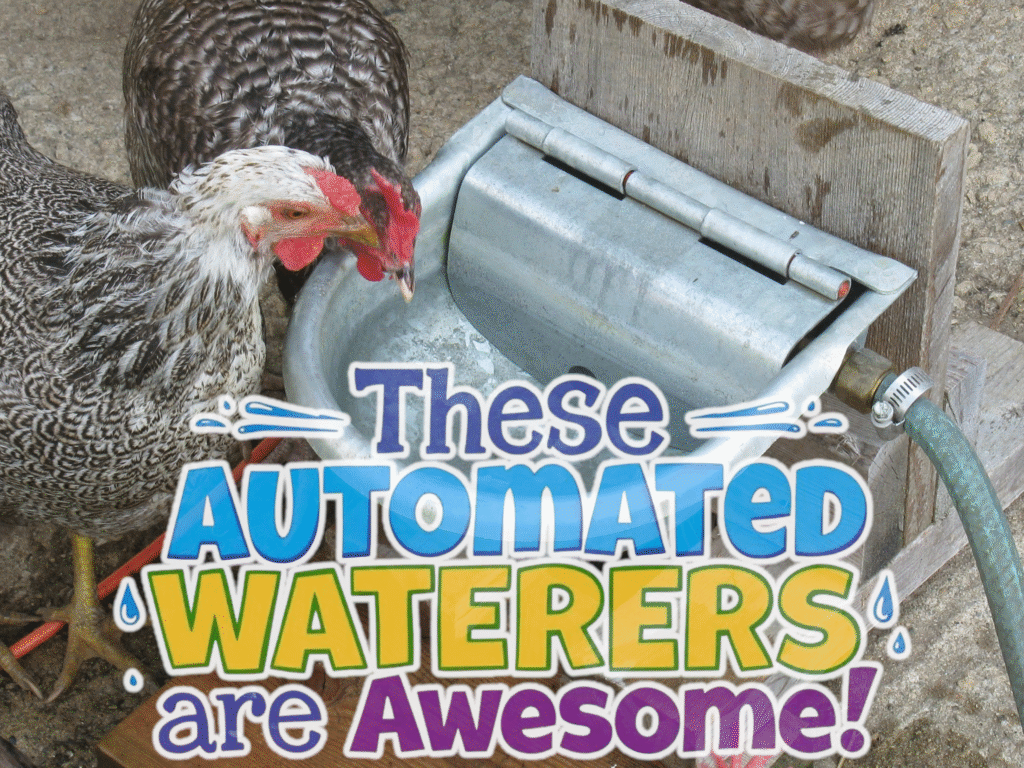What Decades with Roosters Have Taught Me (Besides Patience)
If you’re wondering why your rooster seems to have a lot to say from sunup to sundown, you’re in good company. After decades of raising birds, I’ve spent plenty of mornings sipping coffee while my boys practiced their arias—and afternoons wondering if they ever take a breath. You asked me, “why do roosters crow all day?” so I’ll answer you straight, with a little science, a lot of practical experience, and plenty of heart for the birds we love.
I’ll keep this honest and simple: roosters crow all day for a mix of biology, environment, flock dynamics, and habit. You can’t eliminate crowing entirely (it’s who they are), but you can reduce the frequency and volume, and turn chaos into a calmer rhythm.
Let’s walk through what actually drives all-day crowing—and what you can do that’s humane, effective, and respectful of your rooster.
Quick Answer: Why Do Roosters Crow All Day?
Here’s the short version I’ve seen play out over and over:
– Light and circadian rhythm: Roosters are incredibly sensitive to light changes. Bright mornings, shifting shadows, and artificial lighting all stimulate crowing.
– Territory and status: Crowing says, “This is my spot.” It’s a broadcast to rivals and reassurance to hens.
– Mating and courtship: Midday crowing ramps up when hens are active; it’s part bravado, part love song.
– Flock communication: Roosters call to gather, warn, and check in. A passing hawk, the dog barking, a loud truck—each can trigger crows.
– Social competition: If one rooster crows, the rest answer. One vocal bird can set off a domino effect.
– Boredom and confinement: Tight spaces and nothing to do mean more noise. Free movement helps.
– Stress or discomfort: Heat, thirst, poor ventilation, parasites, or general unrest can raise the noise level.
If your main question is why do roosters crow all day, it’s usually a blend of the above. The good news: you can temper many of these triggers.
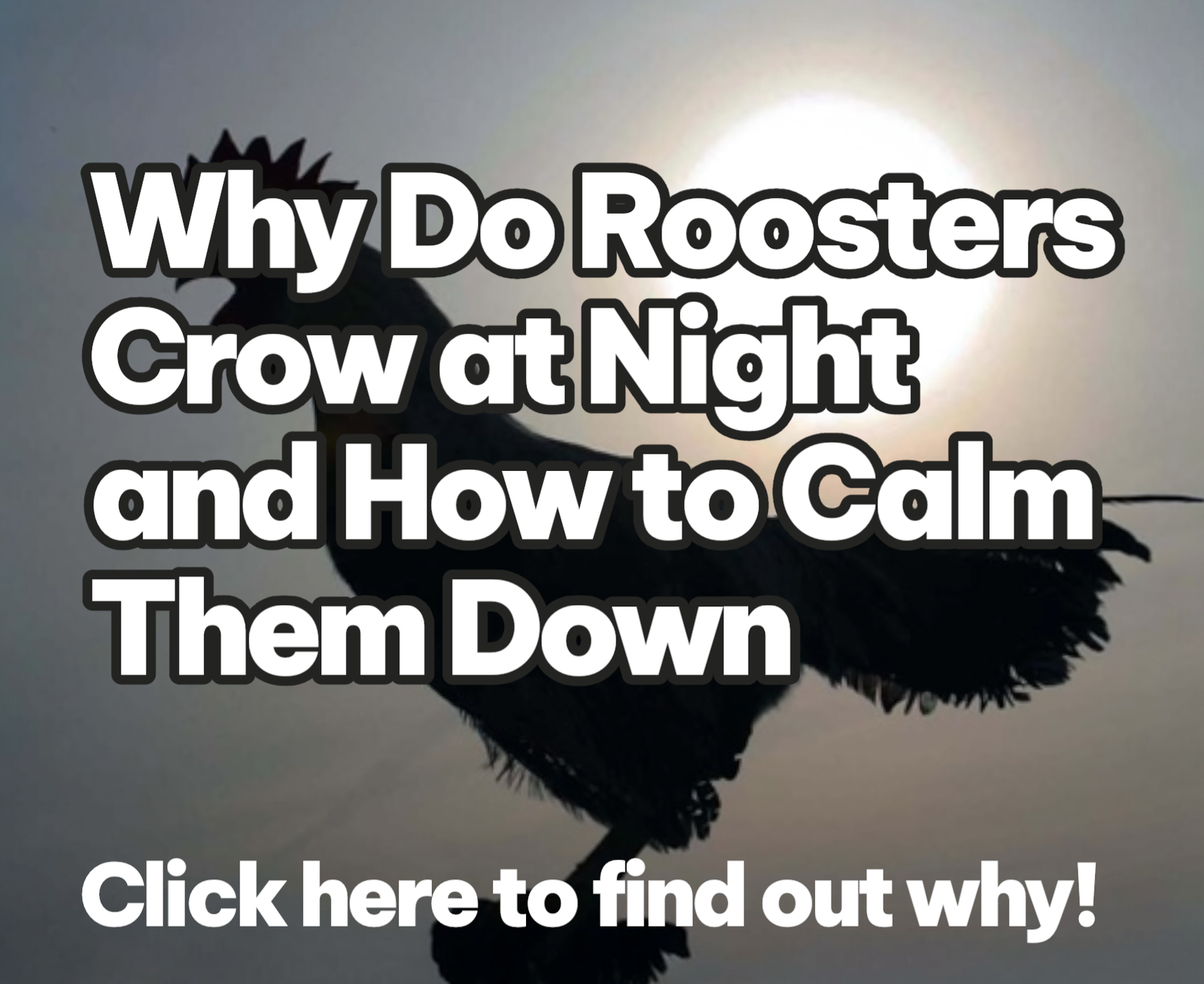
Inside the Rooster Body Clock (and Why Light Matters)
Roosters don’t just crow at dawn; they crow when their internal clock says “big moment.” That clock is tied to light. Even subtle increases—like sunlight bouncing off a new window or a backyard floodlight—can cue crowing.
– Dawn chorus: Before sunrise, melatonin drops, cortisol rises, and they warm up for the day. That priming can spill into late morning.
– Midday spikes: Bright sun, moving shadows, sudden cloud breaks—light shifts during the day can trigger fresh rounds of crowing.
– Artificial light: Shop lights, porch LEDs, motion sensors, and even interior light leaking from the house can confuse the clock. If you’re also puzzling over nighttime noise, I go deeper into that in this guide to roosters crowing at night and how to calm them down.
If you’re tweaking coop lighting, stick to a consistent, gentle schedule. Sudden artificial dawn at 4:30 a.m. is a surefire way to add more crowing across the entire day.
Flock Politics: The Loud Side of Leadership
Roosters are managers, sentries, and show-offs. When people ask me why do roosters crow all day, I often point them to flock dynamics:
– Announcing dominance: A rooster says “I’m in charge” many times a day. If there are multiple roosters, expect an ongoing debate.
– Hens in lay: Roosters crow more when hens are actively foraging, laying, or moving around. Midmorning and midafternoon can be busy.
– Rival birds nearby: If your neighbor has a rooster (or a very proud goose), they can egg each other on all day long.
– Too many roosters: One rooster can manage 8–12 hens well. More roosters than that? Expect nonstop bragging (and stress for everyone).
A calm, appropriately matched flock makes a quieter yard.
Common Triggers That Make Daytime Crowing Unrelenting
If your rooster seems “extra,” check for these:
– Pen too small or bare, no visual breaks
– New birds added recently (they’re re‑negotiating the pecking order)
– Loud neighborhood (leaf blowers, dogs, construction, kids’ practices)
– Feed or water issues (empties, algae, sour feed)
– Heat stress
– Predator pressure (even if you don’t see the predator—hawks, raccoons, or feral cats often lurk)
– Mirrors/reflections or shiny windows near the run
– No routine: birds calm down with predictability
Crowing is their way of resolving confusion and announcing control. Reduce confusion, reduce crowing.
Is This Normal Crowing—or a Red Flag?
Normal:
– Predictable dawn crowing, with occasional midday bursts.
– Response crowing when a dog barks or a car backfires.
– Increased vocalizing during mating season or after adding birds.
Potential red flags:
– Panting, open-mouth breathing, wings held away from body (heat stress).
– Lethargy, fluffed posture, or pale comb.
– Constant pacing, frantic jumping at the fence.
– Sudden, dramatic spike in crowing with aggressive behavior.
If your gut says “something’s off,” listen. Check water, shade, ventilation, parasites, and predator traffic first.
Humane Ways to Reduce Daytime Crowing
I love my roosters. I don’t try to make them silent; that’s not fair or natural. But I do use these strategies to keep the peace:
– Manage light: Use blackout curtains on coop windows for the pre-dawn hours and minimize bright artificial light. Let natural sunrise be the “on” switch.
– Provide space and sight breaks: Add shrubs, pallet walls, or fencing panels so birds can’t stare down rivals all day. Privacy reduces posturing.
– Enrich the run: Hanging cabbage, scattered scratch in deep litter, perches at varied heights—busy birds complain less.
– Optimize rooster-to-hen ratio: Aim for one rooster per 8–12 hens. Rehome extras or split flocks if needed.
– Consider a “quiet zone” coop placement: Put the coop behind a garage or shrubs to block street noise and reduce your rooster’s urge to “answer” the world.
– Free-range when safe: Movement and foraging reduce boredom and tension. As a bonus, free-ranging can cut feed costs and boredom, both of which help tone down the all‑day chorus.
Note on gadgets: “No-crow” collars can restrict breathing and be dangerous. I don’t recommend them.
Water, Feed, and Comfort: The Quieting Power of Good Care
People underestimate how often crowing is a care signal. Thirsty, overheated, or uncomfortable birds talk more. A few simple tweaks can make a big difference:
– Fresh, clean water all day: Slime and algae make birds avoid the waterer. Here’s how I keep it clean: stop algae in chicken water the easy natural way. If you’re considering copper, read this first: can I use copper in my chickens’ water to stop algae?
– Reliable delivery: I moved to an automatic system because it cut my chore stress and kept the flock calmer. This is the setup I wish I’d installed years earlier: the auto waterer for chickens I wish I’d bought sooner.
– Seasonal water management: In winter, consider a safe heated bowl to prevent freeze-ups; nothing spikes noise like frozen water and frustrated birds.
– Shade and airflow: Hot birds crow more. Provide shade sails, trees, or a simple tarp, and ensure your coop is well‑ventilated.
– Balanced nutrition: Hungry birds are cranky birds. Keep feeders topped and use a quality ration appropriate to age and season.
Crowing won’t vanish, but it will settle into a calmer cadence when basic needs are met without hiccups.
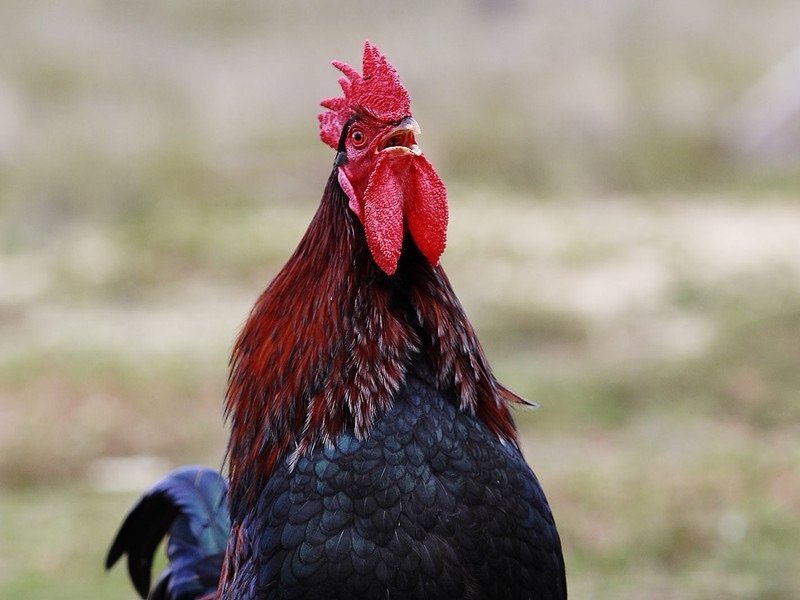
Egg-Laying, Hen Stress, and the Crowing Feedback Loop
Hens’ stress shows up in the rooster’s behavior. When hens are agitated, moving constantly, or fighting for resources, roosters “manage” them—loudly.
If you’re also chasing egg issues, these resources will help you troubleshoot the bigger picture:
– Check common causes and fixes here: why aren’t my chickens laying eggs.
– New to point-of-lay timing? Here’s a straightforward primer: when do chickens start laying.
Interestingly, when laying settles into a routine and the coop/run flow is smooth, roosters tend to crow less during the day. Calm hens, calmer soundtrack.
Routine Tweaks That Set You Up for a Quieter Day
Night and morning habits shape the rest of your day—and your rooster’s vocal schedule.
– Pre-dawn darkness: Keep the coop dark until a reasonable hour. A breathable blackout curtain solution can help, but never block airflow.
– Predictable release time: Let them out at the same time daily so the “rooster announcement” happens once, not five times.
– First hour food and water: Make sure resources are ready before they wake. Nothing triggers a parade of complaints like empty feeders at sunrise.
– Winter adjustments: In cold months, comfort counts. If you avoid electricity, practical insulation tactics and draft‑free ventilation help birds rest better and vocalize less at odd hours. Here’s what’s worked for me to keep chickens warm in winter without electricity.
When nights are restful and mornings are predictable, daytime crowing becomes more situational, less constant.
Breed and Personality: Some Boys Just Love Their Voices
I love a big, confident rooster as much as anyone, but let’s be honest: some lines are louder. Mediterranean breeds (like Leghorns) can be especially expressive. Docility varies even within the same breed—so if peace and quiet are top priorities, choose from calmer lines and handle chicks often to build trust early.
That said, I’ve met quiet Leghorns and chatty Orpingtons. Personality matters. Watch them young, and rehome roosters who don’t fit your setting before habits harden.
What “Works Like Magic” (And What Usually Doesn’t)
What helps:
– Space, shade, enrichment, visual barriers
– Stable rooster-to-hen ratio
– Free-ranging time (when safe)
– Predictable daily rhythm
– Clean, always-available water and quality feed
– Managing light exposure
What doesn’t (or can be risky):
– Crow collars (choking risk, stress)
– Keeping multiple roosters with too few hens
– Flooding the coop with bright artificial light at odd hours
– Starving a rooster of stimulation (bored birds make their own fun)
If you’re focused on why do roosters crow all day, think “less chaos, more routine.” The quieter answer is rarely a gadget; it’s nearly always husbandry.
Frequently Asked Questions (From Neighbors, Too)
– Does a rooster crow all day because he’s unhappy?
Not always. Crowing is natural. But a sudden increase can point to stress, thirst, heat, or competition.
– Will a rooster stop crowing if I keep him in a dark coop?
He’ll crow less in the dark, but don’t trap him without ventilation or space. Use darkness to guide timing, not to prevent normal behavior entirely.
– Are there truly “quiet” roosters?
Quieter personalities exist, but no rooster is silent. If absolute quiet is a must, you may need to keep hens without a rooster.
– Is one rooster better than two?
For most backyard flocks, yes. One good rooster with 8–12 hens is often ideal.
– Can training reduce crowing?
You can shape routines (release times, feeding) and reduce triggers, but you can’t “train out” crowing completely.
A Simple Weekly Checklist for Calmer Days
– Waterers scrubbed, algae prevented, and always full
– Feed fresh, protected from moisture and rodents
– Shade and airflow checked; heat mitigation in place
– Visual barriers intact (no rooster “stare-down” zones)
– Predator signs monitored; perimeter inspected
– Coop lighting consistent and not too bright too early
– Hen-to-rooster ratio healthy; no new rivals added without plan
– Enrichment rotated (perches, foraging opportunities)
– Health checks: comb color, breathing, weight, parasites
For the water side of things, a few smart tools go a long way—this article breaks down a system that drastically lowered my “complaint crowing” by stopping daily water hassles: the auto waterer for chickens I wish I’d bought sooner. And to keep it clean, start with this no-fuss algae fix and then consider if copper is right for your setup.
When It’s Time to Rehome (And That’s Okay)
I’ll say this gently: sometimes the right answer is a new home. If your rooster is a great bird in the wrong location—tight suburban lots, strict ordinances, noise complaints that won’t stop—rehoming is an act of care, not failure.
Before you decide, try the husbandry fixes above. If the chorus still clashes with your life, place him with a flock that can absorb his personality. I’ve done it, and I’ve never regretted choosing peace for both the bird and my home.
Tying It All Together: My Honest Take
If you came here asking why do roosters crow all day, here’s my final, heart-level answer: because they’re roosters. They’re wired to announce the day, declare their place, protect their hens, and talk back to the world. Our job isn’t to silence them—it’s to guide the tempo.
Keep the light consistent. Give them space, shade, and something to do. Match your flock’s numbers. Offer clean, constant water and balanced feed. Let them free-range when you can. Add privacy where needed. Build a predictable routine.
Do those, and the constant crowing softens into a conversation—still spirited, still proud, but no longer overwhelming. And on a good day, with coffee in hand and hens content at your feet, that song becomes part of the charm that drew you to chickens in the first place.
If nights are part of your struggle too, don’t miss this deep dive on roosters crowing at night and how to calm them down. And if you’d like a quieter, smoother morning rhythm, freeing up time and sanity, circle back to the auto waterer I swear by and the quick win to stop algae in chicken water the easy natural way. A calmer system really does lead to a calmer rooster.
As an Amazon Associate we earn from qualifying purchases through some links in our articles.

